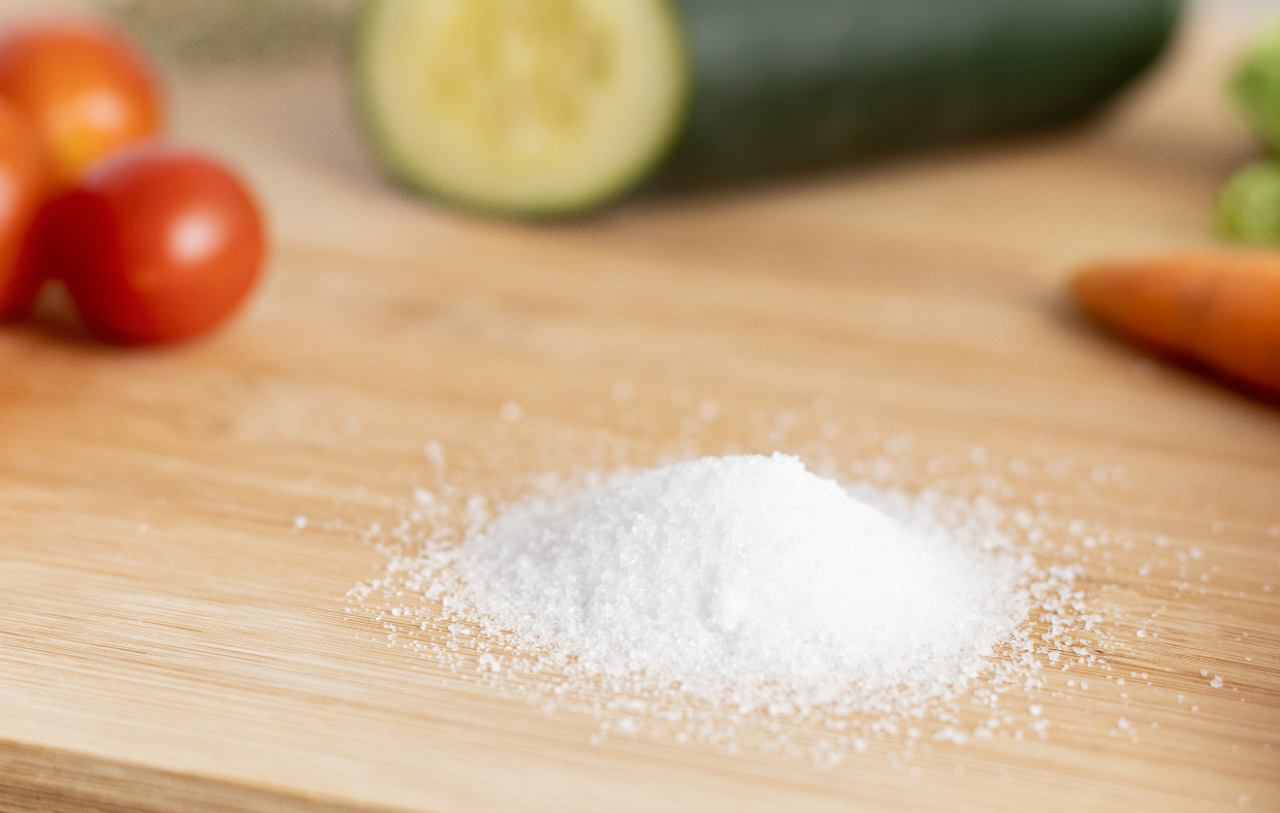Many of us have a habit of salting our food before we taste it. It seems harmless, but is it?
About half of American adults have high blood pressure, also called hypertension, and because there are no obvious symptoms in the early stages, we don’t take steps to address it. Unfortunately, too much salt can contribute to hypertension.
Why is hypertension a big deal? Because it can damage our arteries, and our arteries are responsible for supplying every organ in our bodies with life-sustaining nutrients and oxygen. If you picture your arteries as garden hoses, you can imagine how important it is that they be smooth, flexible, and strong. When they become clogged or brittle, they don’t work as well.
High blood pressure puts excessive force against the inner walls of our arteries, causing them to narrow, become less elastic, and weaken at specific points. Because the smallest, most delicate arteries are damaged first, we do not immediately see the effects of hypertension. However, over time, larger arteries are damaged, sometimes with catastrophic results. Consider a garden hose with a weak spot. If you turn the water on full blast, the pressure can cause that weak spot to burst. When this weakness happens in an artery, it is called an aneurysm.
We measure blood pressure with systolic and diastolic pressure. Systolic pressure measures when the heart contracts (beats) and diastolic pressure measures when the arteries relax. Your blood pressure is reported as systolic over diastolic pressure; ideally, 120/80 or lower. To find out your blood pressure, you can pick up a blood pressure cuff at your local drug store or use a blood pressure cuff machine at a grocery story or pharmacy. For best results, use an arm cuff, not a wrist cuff.
Sometimes stress, too much caffeine, or other short-term events increase blood pressure. As long as your blood pressure returns to normal relatively quickly, you’re probably fine. If you get consistently high results (anything over 130/90), make an appointment to see your healthcare provider because chronic high blood pressure or a huge spike in blood pressure can cause things like heart attacks, strokes, kidney failure and blindness. High blood pressure can also complicate diabetes symptoms.
Like most health conditions, not everyone is prone to hypertension. Risk factors include having a family history, being older than 65, being Black, being obese or overweight, using drugs and alcohol, and not being physically active. There’s not much anyone can do about family history, age, or ethnicity, but most folks can improve their diet, activity level, and drug use.
If you have hypertension, the first things to do are to reduce sodium (salt) in your diet and lose weight if needed. Putting the saltshaker away is a good start, but once you start reading food labels, you may be shocked to discover just how much sodium is added to packaged food. A lower-sodium diet includes less than 2300 milligrams of sodium per day. The dietary approach to stop hypertension (known as the DASH diet) mirrors the Mediterranean diet and is a great one for cardiovascular health.
To further protect your arteries, it is best to limit caffeine intake to the equivalent of one cup of coffee per day and your alcohol intake to one drink per day. Energy drinks like Red Bull and Monster are terrible. If you are a smoker or use recreational drugs, consider quitting. And finally, get out there and move your body for either 70 minutes of strenuous activity per week or 150 minutes of moderate activity per week.
When hypertension is diagnosed early, any negative effect can be reduced and even reversed with lifestyle changes and sometimes medication. If you haven’t had a check-up in more than a year, call your healthcare provider for an appointment today.
Richelle Gaiter, PA, is a primary care provider at MCHC Health Centers—a community-based and patient-directed organization that serves Mendocino and Lake Counties, providing comprehensive primary healthcare services as well as supportive services such as education and translation that promote access to healthcare. Learn more at mchcinc.org.

 MyChart Login
MyChart Login

